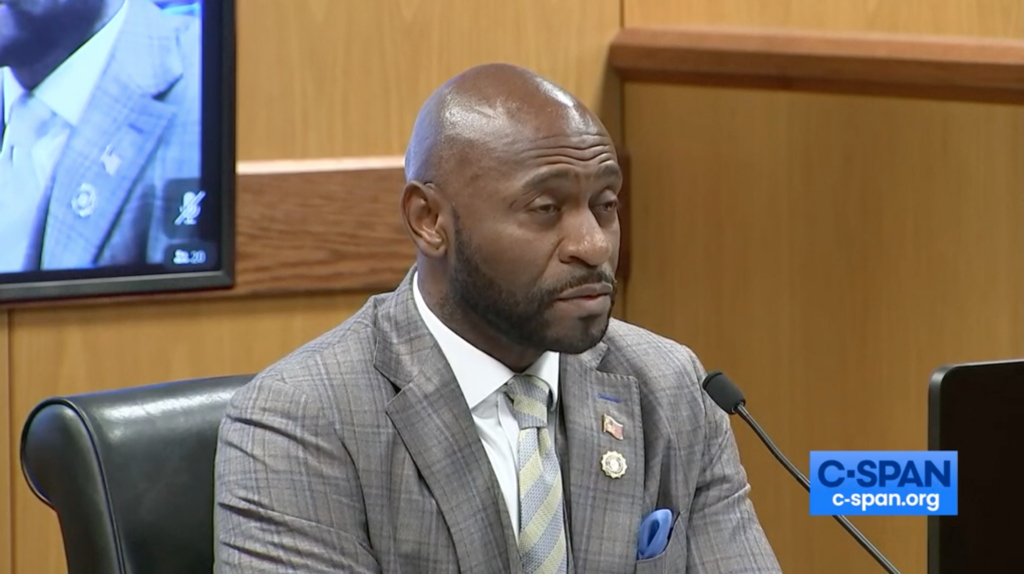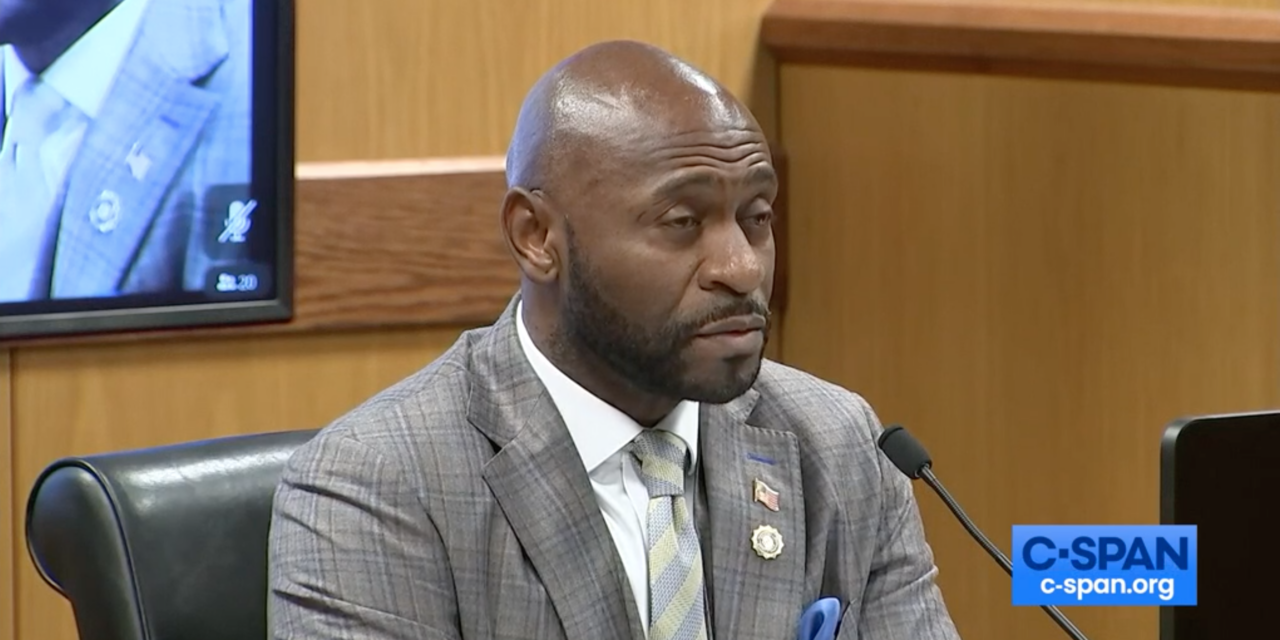Steve Sadow (79L), former U.S. President Donald Trump’s legal counsel, asked on March 18 to appeal Fulton County Superior Court Judge Scott McAfee’s (10C) March 15 ruling regarding the fate of Fulton County District Attorney Fani Willis (96L). In the ruling, McAfee found that Willis can continue her investigation into Trump and his allies’ attempted interference in Georgia’s 2020 presidential election despite her affair with Nathan Wade, a special prosecutor for the case.
According to Emory University School of Law Visiting Associate Professor of Practice John Acevedo, McAfee’s decision stated that either Willis or Wade would have to resign due to the affair. Wade decided to resign on March 15. In his resignation letter, Wade wrote that he made the decision in the “interest of democracy, in dedication to the American public and to move this case forward as quickly as possible.”

Special prosecutor Nathan Wade testifies about his personal relationship with District Attorney Fani Willis (91L). (Courtesy of Cable-Satellite Public Affairs Network)
Wake Forest University School of Law (N.C.) Professor of Practice Ellen Murphy said that it made more sense for Wade to resign because if Willis did so, it could remove the entire district attorney’s office from the case.
However, Acevedo said that McAfee made this decision to eliminate the appearance of “impropriety” from the case, especially because Wade and Willis may “restart a relationship.”
“It’s purely for appearances,” Acevedo said. “It’s also partly to ensure that this issue doesn’t keep arising during the course of the case.”
Acevedo said that Wade’s recusal from the case may cause delays, as Willis will have to either promote an attorney who was working under Wade or seek help from an outside law firm — the latter of which can take months. This process is made even longer when a new attorney has to catch up on the facts of the case, Acevedo added.
“It’s unclear how long of a delay this will be,” Acevedo said. “The goal was to have an August start date. So it may very well be that that timeline can be kept.”
Acevedo said that Trump’s legal team’s strategy has three tactics: delay the trial, create distraction through the appeal and ruin the reputation of the district attorney’s office in Fulton County.
Acevedo said that appealing the decision can cause further delay and distraction, especially if McAfee grants Sadow’s petition to appeal and the Georgia Court of Appeals decides to accept it.
“That would then sideline the case for several weeks and possibly a month,” Acevado said. “Finally, even if they aren’t able to appeal or the appeal is quickly dismissed and the timeline stays on track, they tarnish the DA’s office in the eyes of the Fulton County jurors — that is, potential jurors who may take over this case and eventually decide the fate of former President Trump and his co-defendants by calling a question of her judgment.”
Murphy shared a similar sentiment, explaining that it is possible that the purpose of calling for Willis and Wade’s removal is to “taint” the jury pool and Willis’ reputation, which could make an outcome favorable to Trump more likely. Georgia State University College of Law Assistant Professor of Law Anthony Michael Kreis, on the other hand, noted that McAfee’s decision does not change what a jury would think about the case, as people already have opinions on the trial due to their previous political affiliations.
Before Sadow filed his appeal on March 18, he posted on X explaining his team’s reasoning to dispute McAfee’s decision on March 15.
“While respecting the Court’s decision, we believe that … it did not afford appropriate significance to the prosecutorial misconduct of Willis and Wade, including the financial benefits, testifying untruthfully about when their personal relationship began,” Sadow wrote. “We will use all legal options available as we continue to fight to end this case, which should never have been brought in the first place.”
Sadow and the defendants asked McAfee for a certificate of immediate review, which would allow the disqualification hearings to proceed to the Georgia Court of Appeals. The Court of Appeals would then have a choice to take the case, according to Kreis.
Kreis added that the Court of Appeals will have to decide if Sadow’s appeal needs to be addressed immediately because the defendants have to either establish new precedent or prove that McAfee’s decision is “obviously wrong that it needs correcting immediately.”
“That’s a really tough burden for the defendants here to show,” Kreis said. “I don’t think anybody thinks that it’s likely that the Court of Appeals will take it.”
Kreis said that it is unlikely the trial will take place before the 2024 presidential election, adding that he was never confident in its scheduled August start time.
According to Murphy, McAfee’s decision was both very “reasonable” and the best outcome that Willis could have received.
“Judge McAfee made a number of negative comments about attorney Willis’s behavior,” Murphy said. “In light of that, … this decision is the best consequence that the prosecutor’s office could have gotten.”
Spencer Friedland (26C) is from Long Island, New York and is the Emory Wheel's Managing News Editor. He is a Philosophy, Politics and Law major and has a secondary major in Film. Spencer is also a part of the Franklin Fellows program at Emory.






